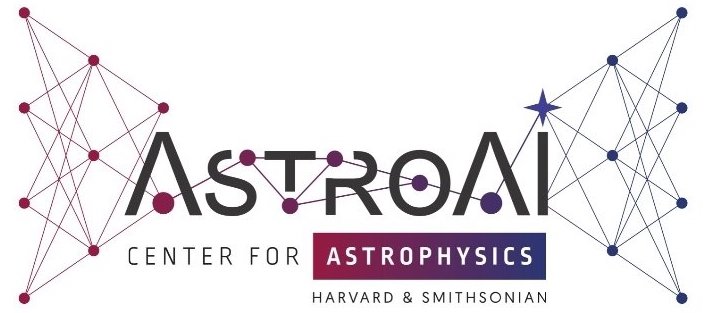AstroAI Workshop 2025
Bill Freeman
Exploiting the independence of the image from the sensor
Presenter: Bill Freeman (Massachusetts Institute of Technology)
Title: Exploiting the independence of the image from the sensor
Date/Time: Monday, July 7, 10:00 AM - 12:30 PM
Abstract: Many astronomical imaging problems involve solving underconstrained inverse problems. To make the problem well-posed, we need to combine the measurement likelihood with a prior on the image to be reconstructed, and we often add a positivity constraint. There is an additional constraint that is seldom imposed, but which may be powerful: that the reconstructed image and the measurement sensors should be independent.
For the case of linear inverse problems, with observations y = A x, the estimated image, x, is often “contaminated” by the rows of the sensing matrix, A, requiring an overly strong prior on the image to avoid those artifacts.
Examples of the desired independence: suppose a sensor measures only one wavelength band per pixel. From an image where the full spectrum is reconstructed at each pixel, you shouldn’t be able to learn which pixel sensed which wavelengths. And you shouldn’t be able to learn the telescope positions from the image reconstructed from VLBI measurements. Imposing the independence assumption can lessen our reliance on priors in the science images we reconstruct. I’ll show ways to impose these independence constraints.

Biography: William T. Freeman is the Thomas and Gerd Perkins Professor of Electrical Engineering and Computer Science (EECS) at MIT, and a member of the Computer Science and Artificial Intelligence Laboratory (CSAIL) there. He was the Associate Department Head of EECS from 2011 – 2014. Since 2015, he has also been a research manager in Google Research in Cambridge, MA. His current research interests include mid-level vision and computational photography. Previous research topics include steerable filters and pyramids, orientation histograms, the generic viewpoint assumption, color constancy, computer vision for computer games, motion magnification, and belief propagation in networks with loops. He received outstanding paper awards at computer vision or machine learning conferences in 1997, 2006, 2009, 2012 and 2019, and test-of-time awards for papers from 1990, 1995, 2002, 2005, and 2012. He shared the 2020 Breakthrough Prize in Physics for a consulting role with the Event Horizon Telescope collaboration, which reconstructed the first image of a black hole. He is a member of the National Academy of Engineering, and a Fellow of the IEEE, ACM, and AAAI. In 2019, he received the PAMI Distinguished Researcher Award, the highest award in computer vision.
